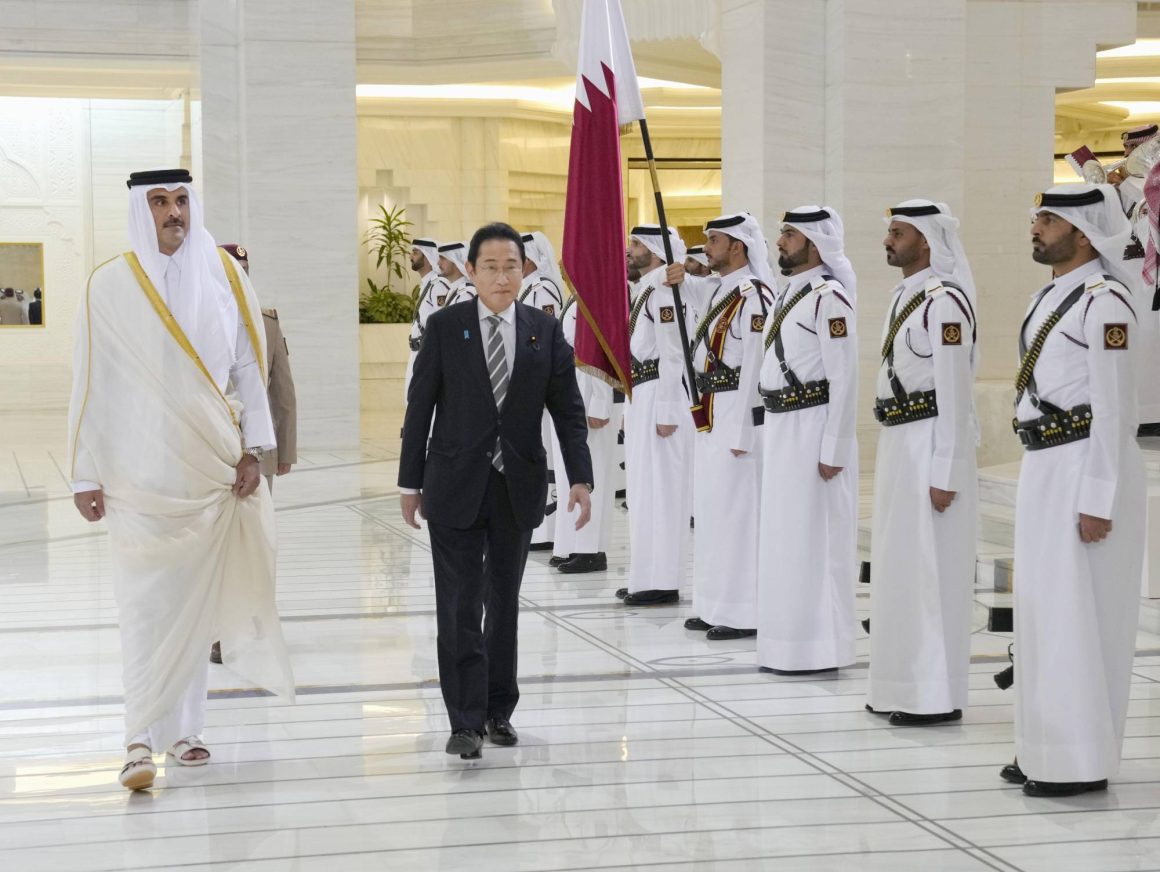Dr. Al Jaber’s official visit took place during Tokyo GX Week, a special event organised by Japan’s Ministry of Economy, Trade and Industry to promote green transformation.
The President-Designate also discussed with Kishida the UAE’s preparations to host COP28 in November and December this year. The meeting follows the Prime Minister’s successful visit to Abu Dhabi last July, which yielded substantial progress in implementing programs, projects, and initiatives within the Comprehensive Strategic Partnership.
Dr. Al Jaber this week co-chaired the inaugural meeting of the UAE-Japan Comprehensive Strategic Partnership, where he engaged in bilateral meetings with Japanese government officials and private sector partners.
The President-Designate met Yoko Kamikawa, Minister of Foreign Affairs, Yasutoshi Nishimura, Minister of Economy, Trade and Industry; Shintaro Ito, Minister of the Environment; Yukio Kane, Global CEO of JERA; and Maeda Tadashi, Governor of Japan Bank for International Cooperation (JBIC).
Dr. Al Jaber also gave an address at a GX Week ministerial session, focused on energy security, decarbonisation and economic growth, where he highlighted the important role Asian nations, including Japan, will play in climate action.
“The north star of the COP28 Presidency is keeping 1.5 within reach. To achieve this, we must remove 22 gigatons in emissions by 2030,” he told delegates. “At the same time, we know that energy demand will grow nearly 25 per cent by 2045, and two thirds of that growth will be in Asia. As such, the energy choices Asia makes will have a huge impact for the whole world.
“Asia is central to many of the drivers of global green transformation. This region is home to over 1000 GW of installed renewable energy capacity and is on track to grow to 1500GW in the next 2 years. A trajectory that aligns with COP28’s call to triple renewable energy capacity, as part of a fast, fair and well-managed energy transition.”
Dr. Al Jaber also highlighted the different pathways to net zero based on individual country situations. “There will be multiple net zero pathways ─ depending on the diverse circumstances of each country. And the critical success factors for each pathway are smart government policies, investment in technologies and, critically, finance.”
“COP28 is calling for climate finance to be more available, accessible and affordable. IFIs and MDBs need to modernize their mandates. Innovative financial mechanisms must be fully explored to lower risk, including currency risks. Voluntary carbon markets must be developed with integrity at their core. Private finance must be mobilised at a multiple to close the multi trillion-dollar climate investment gap. And we should not overlook the power of efficiency as the fastest, simplest and cheapest way to cut carbon emissions.”
During the session, Dr. Al Jaber’s sentiments were echoed by the attendees highlighting the importance of utilizing energy efficiency as a ‘first fuel’ in addition to the deployment of hydrogen and Carbon Capture Solutions as decarbonisation options for hard-to-abate sectors.
The visit also included the signing of a joint declaration of intent (JDI) between the UAE Ministry of Industry and Advanced Technology and Japan’s Ministry of Economy, Trade and Industry, designed to enhance cooperation between the two nations on climate action and on advancing the energy transition. The JDI envisages the development of a global green energy hub between the two nations.
Dr. Al Jaber noted that the UAE and Japan are already co-operating on hydrogen development, and praised Japan’s pioneering role in developing energy efficiency technologies that the world can take to scale.
By WAM

